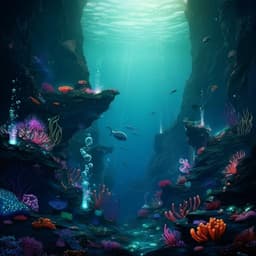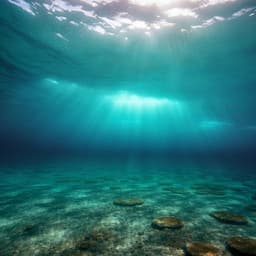
Earth Sciences
Deep-sea shipwrecks represent island-like ecosystems for marine microbiomes
L. J. Hamdan, J. J. Hampel, et al.
This research by Leila J. Hamdan, Justyna J. Hampel, Rachel D. Moseley, Rachel L. Mugge, Anirban Ray, Jennifer L. Salerno, and Melanie Damour highlights how deep-sea shipwrecks, like the *Anona* in the Gulf of Mexico, create unique hotspots for marine microbiomes. The findings reveal a significant 'island effect', with microbiome diversity booming near wrecks, making these sites crucial for studying seabed biogeography.
Playback language: English
Related Publications
Explore these studies to deepen your understanding of the subject.







